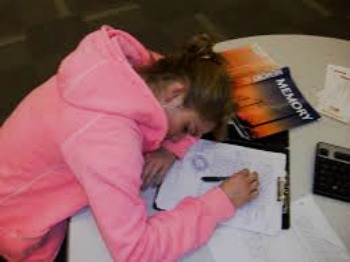Sleep, or the lack of it, can make or break your day. Sleep affects your mood and energy, thereby affecting your performance. Whether your are still a student or already a member of the working class, you can’t afford to always pull all-nighters if you want to put your best shoes forward all the time. We already know it but it’s even more depressing to confirm what we knew all along. Experts reiterate that your grade may suffer if you constantly suffer from sleep deprivation. So students, beware.
 Even if you aren’t running for honors, you can afford to always lose sleep regardless of the reason you stay up late at night. However, getting that minimum eight hours of sleep nightly isn’t that easy to pull off with the numerous distractions in your immediate surroundings. From smartphones, the Internet, school, social life, family and relationship issues, etc., you may end up tossing and turning until the early morning hours, so you look like a giant panda sporting dark undereye circles the following day. And worse, your school grades suffer too because your mind isn’t just up to doing any logical thinking and reasoning to help boost your scores.
Even if you aren’t running for honors, you can afford to always lose sleep regardless of the reason you stay up late at night. However, getting that minimum eight hours of sleep nightly isn’t that easy to pull off with the numerous distractions in your immediate surroundings. From smartphones, the Internet, school, social life, family and relationship issues, etc., you may end up tossing and turning until the early morning hours, so you look like a giant panda sporting dark undereye circles the following day. And worse, your school grades suffer too because your mind isn’t just up to doing any logical thinking and reasoning to help boost your scores.
College students who go to sleep and wake up at different times during the week may be harming their academic performance, according to a U.S. study.
Consistency – going to bed and waking up at about the same time every day, weekends included – was linked with a better grade point average (GPA) among the college students in the study, the researchers found.
“College students who sleep starved themselves during the week and then binge slept on weekends had poorer grades than those whose schedules were more consistent,” senior author Dr. Charles Czeisler, director of the Sleep Health Institute at Brigham and Women’s Hospital in Boston, told Reuters Health by email.
Importantly, it didn’t matter how much sleep the students got overall. Sleep timing on its own could predict worse academic performance, even if students made up for lost night-time sleep with naps during the day, according to the results published in Scientific Reports.
(Via: http://www.reuters.com/article/us-health-sleep-college-grades-idUSKBN1942M6)
Truly, getting a good night’s sleep can pave the way to your success in the academe and outside the four corners of the classroom later in life. Sleep restores the body to its peak shape. Many restorative processes take place once we close our eyes for the night that you don’t get even if you try to catch some sleep later in the day. Blame it on your circadian rhythm but that’s how nature designed your body to function.
To achieve success, sleep is vital. And if you’re a student, staying up late to cram for a test is not going to help you get that A. Instead, get in the habit of having a regular sleep schedule.
A recent study by the Sleep Health Institute at Brigham and Women’s Hospital published in Scientific Reports found that students who went to bed and woke up at consistent times every day performed better academically than students who had irregular sleep schedules. By studying 61 full-time students at Harvard University who kept sleep diaries for 30 days, researchers uncovered the relationships between sleep duration, distribution of sleep throughout the day and academic performance during one semester.
(Via: https://www.entrepreneur.com/article/295767)
The release of melatonin largely has to do with the many health benefits you get from sleep that also helps regulate your normal body clock. Sleep deprivation delays its release, which consequently pushes back your body clock a little later. Students who lack sleep feel groggy and unable to focus most of the day. That’s why they perform poorly in class and get poor grades as a result.
Aside from tech distractions that leave students wide awake each night, sleep disorders may also be a cause for many of these sleepless nights. Many younger patients find it challenging to comply with a conventional treatment like CPAP but the use of anti-snoring mouthpieces may be a good option to help patients sleep better and not constantly catch their breath in their sleep. Students no longer have to suffer more from sleep disorders like sleep apnea and can sleep soundly at night, so they get the grades they deserve all along.
